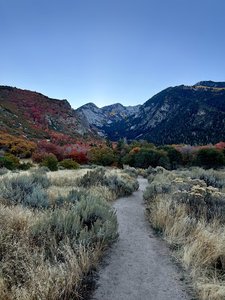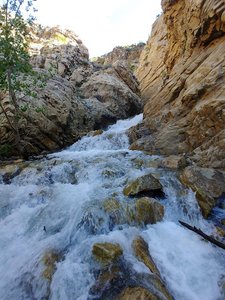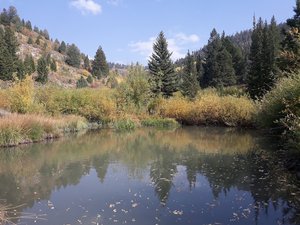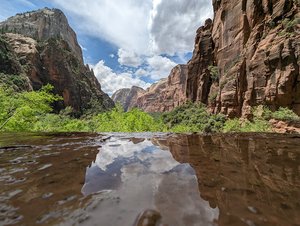Upper Bell Canyon Reservoir Waterfall in Sandy, Utah
The Upper Bell Canyon Reservoir in Sandy, Utah, offers a challenging yet rewarding hiking experience with its diverse terrain and stunning views. The hike includes steep climbs and rocky trails, but hikers are rewarded with multiple waterfalls and breathtaking views of Salt Lake City. Despite the changes in the trail due to safety issues, the route to the upper reservoir is still accessible, though it can be demanding with its mix of boulders and elevation. For those prepared with plenty of water and a good sense of adventure, this hike offers a memorable journey through various natural environments, including potential sightings of fish in the reservoir.

Map
Address
Upper Bell Canyon Reservoir
Sandy, Utah 84092
Features
- Parking_Available
- Crowded
- Scenic_Views
- Wildlife_Sightings
- Waterfall_Flowing
- Shaded_Trail
- Rocky_Terrain
- Steep_Climb
Hours
- Monday: Open 24 hours
- Tuesday: Open 24 hours
- Wednesday: Open 24 hours
- Thursday: Open 24 hours
- Friday: Open 24 hours
- Saturday: Open 24 hours
- Sunday: Open 24 hours
Seasonal Guide
| Season | Best Time To See | Avg. Temp (°F) |
|---|---|---|
| ☀️ Summer | Maybe - Dense foliage partially obscures view | 75-90 |
| 🌸 Spring | Yes - Lush greenery and good weather | 50-70 |
| 🍂 Fall | Maybe - Foliage may obscure view, but pleasant weather | 45-65 |
| ❄️ Winter | Yes - Clear view, cooler weather | 30-50 |
Tips for Visitors
Preparation
As amenities may be minimal near the site, it's wise to pack essentials like water, snacks, and weather-appropriate clothing. Check local weather and trail conditions before setting out.
Navigation
Utilizing a GPS or a detailed local map is recommended, as signage in more remote areas can be limited. Apps like Google Maps or specialized hiking trail apps can be useful to ensure you're on the right path.
Respecting Nature
As with any natural site, practice Leave No Trace principles. This helps preserve the pristine condition of Upper Bell Canyon Reservoir for future visitors and protects the local ecosystem.


